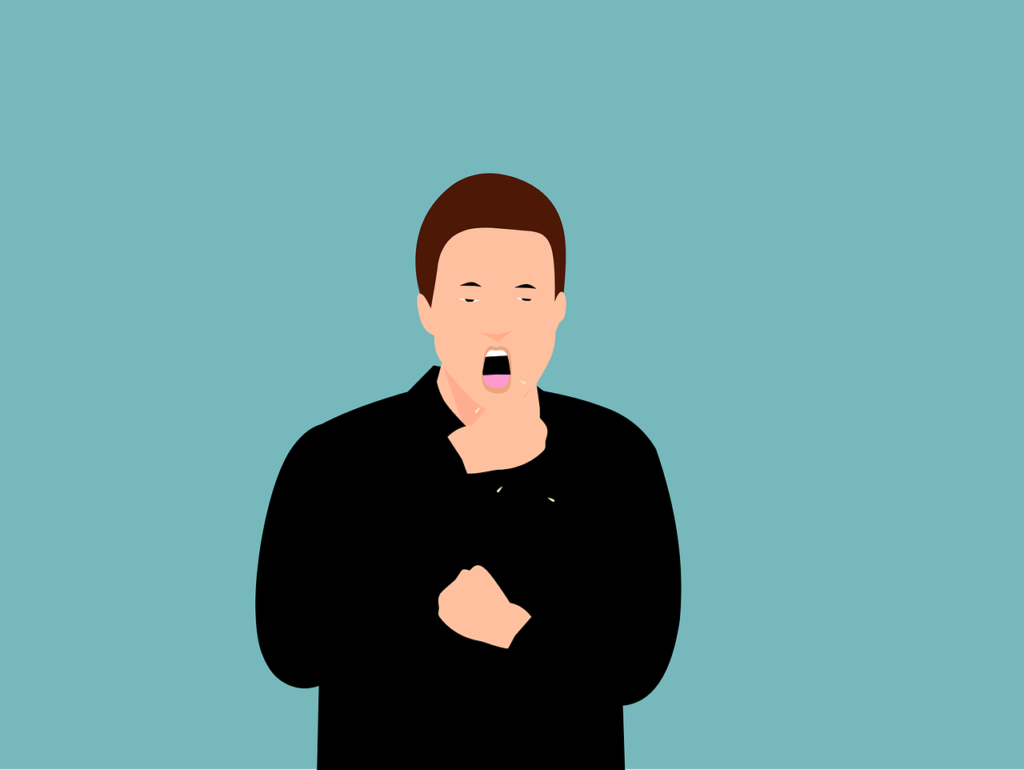Introduction
Coughing is a reflexive action that helps clear the airways of irritants, mucus, and foreign particles. While an occasional cough is a normal bodily function, waking up with persistent or frequent coughing can be uncomfortable and may signal an underlying issue. Morning coughs can disrupt your day from the very start and, over time, can affect your quality of life.
In this article, we’ll explore What Causes Coughing in the Morning, what triggers these issues, and how to manage or prevent them. From postnasal drip and acid reflux to asthma and environmental factors, there are many reasons why someone might experience morning coughing.
Table of Contents
What Causes Coughing in the Morning: 8 Effective Remedies, Symptoms and Treatments

1. Postnasal Drip: A Leading Culprit
Postnasal drip occurs when mucus drips down the back of your throat from your nasal passages. This typically happens overnight because lying down makes it easier for mucus to accumulate. Upon waking, you may feel a tickle in your throat, leading to coughing as your body tries to clear it out.
Causes of Postnasal Drip:
- Allergies: Seasonal allergies (hay fever) or indoor allergens like dust mites, pet dander, and mould can trigger postnasal drip.
- Sinus infections: Infections cause inflammation in the nasal passages, leading to increased mucus production.
- Colds: A cold often causes an excess of mucus production, leading to postnasal drip, especially in the mornings.
- Dry air: Dry air can irritate the nasal passages, causing them to produce more mucus as a protective mechanism.
Symptoms:
- Coughing, especially in the morning or after lying down.
- An ongoing urge to clear the throat.
- A lingering feeling of mucus buildup at the back of the throat.
- Hoarseness or a sore throat.
Treatment:
Managing postnasal drip often depends on addressing the underlying cause. Over-the-counter nasal sprays, antihistamines, or decongestants can help reduce mucus production. Using a humidifier to keep the air moist can also ease irritation. In more severe cases, consulting a doctor for prescription medications may be necessary.
2. Gastroesophageal Reflux Disease (GERD)
GERD, or acid reflux, occurs when stomach acid flows backwards into the esophagus. This can happen more frequently at night when you’re lying down, allowing the acid to travel more easily into the throat. This reflux irritates the esophagus and causes coughing, particularly in the morning.
Causes of GERD:
- Diet: Eating spicy, fatty, or acidic foods can trigger acid reflux, especially when consumed before bed.
- Overeating: Large meals increase the pressure on the stomach, making reflux more likely.
- Smoking: Smoking weakens the lower esophageal sphincter, the muscle responsible for keeping stomach acid where it belongs.
- Obesity: Excess weight increases pressure on the stomach and can contribute to GERD.
Symptoms:
- Morning cough.
- A warm, uncomfortable feeling in the chest often associated with heart burn Sour taste in the mouth or regurgitation of food or liquid.
- Hoarseness, especially in the morning.
Treatment:
To reduce morning coughing caused by GERD, lifestyle changes can be very effective. Steering clear of trigger foods, opting for smaller meal portions, and staying upright for a while after eating can alleviate symptoms.”. Elevating the head of your bed can also prevent acid from flowing back into your throat. For more persistent cases, medications like antacids, H2 blockers, or proton pump inhibitors may be recommended by your doctor.
3. Asthma: A Common Respiratory Condition
Asthma is a chronic respiratory condition that causes the airways to become inflamed and narrow, leading to difficulty breathing, coughing, and wheezing. Many asthma sufferers experience worse symptoms in the early morning, due to natural variations in hormone levels, cooler air temperatures, and the body’s circadian rhythm.
Causes of Asthma:
- Allergens: Dust mites, pollen, and pet dander can trigger asthma symptoms.
- Cold air: Breathing in cold, dry air can irritate sensitive airways.
- Exercise: For some, physical activity can trigger asthma, especially when performed in cooler environments.
- Viral infections: A cold or flu can worsen asthma symptoms.
Symptoms:
- Morning cough, especially upon waking.
- Wheezing or shortness of breath.
- Tightness in the chest.
- Difficulty breathing, particularly at night or early in the morning.
Treatment:
Managing asthma typically involves using prescribed inhalers, such as bronchodilators or corticosteroids, to reduce inflammation and open the airways. Avoiding known triggers, such as allergens or cold air, can also help. If you suspect your morning cough is asthma-related, consulting a doctor for proper testing and treatment is crucial.
4. Chronic Obstructive Pulmonary Disease (COPD) and Bronchitis
Chronic bronchitis, a form of COPD, is a long-term inflammation of the bronchi, the airways leading to the lungs. This condition leads to excess mucus production, which can be particularly problematic in the morning. As mucus builds up overnight, coughing in the morning is the body’s way of clearing the airways.
Causes of COPD and Bronchitis:
- Smoking: Long-term exposure to cigarette smoke is the most common cause of COPD and bronchitis.
- Air pollution: Continuous exposure to environmental pollutants or occupational irritants, such as dust or chemical fumes, can lead to chronic bronchitis.
- Genetics: Some individuals are genetically predisposed to developing COPD.
Symptoms:
- Chronic cough, especially in the morning.
- Mucus production (phlegm).
- Shortness of breath, particularly after physical activity.
- Wheezing and chest tightness.
Treatment:
While there is no cure for COPD or chronic bronchitis, symptoms can be managed through lifestyle changes, such as quitting smoking and avoiding lung irritants. Medications, including bronchodilators and steroids, can help open airways and reduce inflammation. Pulmonary rehabilitation and oxygen therapy may be recommended for severe cases.
5. Smoking and Morning Cough
Smokers often experience a persistent cough, particularly in the morning. This is commonly referred to as a “smoker’s cough.” Over time, smoking causes inflammation and damage to the respiratory system, leading to an accumulation of mucus. Overnight, mucus builds up in the airways, resulting in a morning cough as the body attempts to clear it.
Causes:
- Cigarette smoke: Inhalation of smoke irritates the airways and causes them to produce more mucus.
- Damage to the cilia: Smoking damages the tiny hair-like structures (cilia) that help move mucus out of the lungs. Without functioning cilia, mucus builds up.
Symptoms:
- Persistent morning cough.
- Mucus production.
- Shortness of breath.
- Wheezing.
Treatment:
The best way to reduce or eliminate a smoker’s cough is to quit smoking. Over time, the body can heal, and the cilia can begin functioning properly again, reducing the need to cough in the morning. There are many resources available, such as nicotine replacement therapies, counselling, and medications, to help individuals quit smoking.
6. Sleep Apnea: A Hidden Cause of Morning Cough
Sleep apnea is a condition in which breathing repeatedly stops and starts during sleep. Obstructive sleep apnea, the most common type, occurs when the muscles in the throat relax excessively, blocking the airway. This can lead to loud snoring, choking, and gasping for air, which may irritate and coughing in the morning.
Causes:
- Obesity: Excess weight can put pressure on the airway, making it more likely to collapse during sleep.
- Age: Age: The prevalence of sleep apnea tends to increase with advancing years
- Enlarged tonsils or adenoids: In children, enlarged tonsils or adenoids can block the airway and cause sleep apnea.
Symptoms:
- Morning cough or dry throat.
- Loud snoring.
- Instances of choking or struggling to breathe while asleep.
- Daytime fatigue due to interrupted sleep.
Treatment:
Sleep apnea is often treated with a continuous positive airway pressure (CPAP) machine, which keeps the airway open during sleep. Weight loss, positional therapy (sleeping on your side), and avoiding alcohol before bed can also help manage sleep apnea symptoms. If you suspect sleep apnea, it’s important to seek a diagnosis from a sleep specialist.
7. Environmental Irritants: Triggers in Your Bedroom
The air quality in your bedroom can have a significant impact on your respiratory health. Dust, mold, pet dander, and chemical pollutants can irritate the respiratory system, leading to coughing, especially after spending a long time in bed overnight.
Causes:
- Dust mites: These microscopic creatures live in bedding, carpets, and upholstery and can trigger allergic reactions, leading to coughing.
- Mold: Mold spores in damp areas of the home can irritate the lungs and cause coughing.
- Indoor air pollution: Cleaning products, air fresheners, and other chemicals can contribute to poor indoor air quality.
Symptoms:
- Morning cough.
- Runny nose or sneezing.
- Watery eyes.
- Worsened asthma or allergy symptoms.
Treatment:
To reduce morning coughing caused by environmental irritants, keep your bedroom clean and free of dust. Wash bedding regularly, use hypoallergenic pillowcases and mattresses, and vacuum often. Consider using an air purifier to reduce airborne allergens and pollutants. If mold is an issue, address any moisture problems and clean affected areas with mold-killing solutions.
8. Medications: Side Effects of Certain Drugs
Some medications can cause coughing as a side effect. One common group of drugs known to cause coughing is ACE inhibitors, which are often prescribed to treat high blood pressure. The cough is typically dry and persistent, and it may be more noticeable in the morning.
Causes:
- ACE inhibitors: These medications cause an increase in bradykinin, a substance that can irritate the lungs and cause coughing.
Symptoms:
- Dry, persistent cough.
- No other cold or flu-like symptoms.
Treatment:
If you suspect that your medication is causing your morning cough, speak with your doctor. They may be able to adjust your dosage or switch you to an alternative medication. Never stop taking prescribed medications without consulting a healthcare professional.
Conclusion
Conclusion: Understanding and Managing Morning Coughing
Morning coughing can result from a variety of causes, ranging from postnasal drip and acid reflux to more serious conditions like asthma, COPD, and sleep apnea. The key to managing morning coughing is identifying the underlying cause and taking appropriate steps to treat or prevent it. Simple lifestyle changes, such as keeping your bedroom free of allergens, elevating your head while sleeping, or quitting smoking, can make a significant difference.
If your morning cough persists or worsens, it’s important to consult a healthcare professional for a proper diagnosis and treatment plan. With the right approach, you can start your day feeling refreshed and cough-free.


